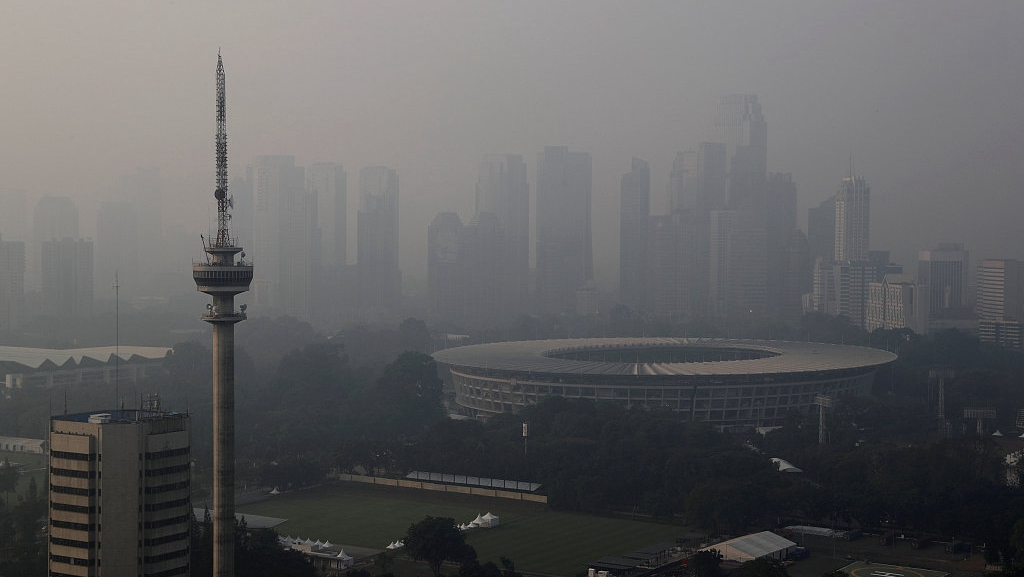
Environment
16:32, 31-May-2019
Jakarta takes e-mobility route to combat air pollution
CGTN

The Indonesian capital Jakarta has begun trials for electric buses to combat rising air pollution in the city, which is home to the world's largest public bus transit system.
More than 200 million commuters use the city's Transjakarta Bus Rapid Transit System (BRT) each year, but the vehicles running on fossil fuels emit a significant amount of harmful gases.
Estimates suggest the city's transportation sector contributes nearly 20 percent to carbon and greenhouse gas emissions.
Jakarta was ranked the most polluted city in Southeast Asia in a study released jointly by IQAir and Greenpeace in March.
Concerned by the toxic air, city planners decided to switch over to green fuel. As part of the plan, the trials for electric buses in the city began in late April.
“We see the move toward electric vehicles as a vital way to combat air pollution and transition to a greener future,” Agung Wicaksono, CEO of Transjakarta, told United Nations Environment Programme (UNEP).
“The electric bus trial programme will give us a good sense of the changes we need to make to the system to ultimately replace all of Jakarta's fleet of public vehicles with electric models.”
Learning from China's e-mobility
Chinese automobile giant BYD and Indonesia's PT Mobil Anak Bangsa provided Transjakarta with the first three electric buses for the trial run.
Known for manufacturing pure electric buses, BYD early this year rolled out its 50,000th e-bus from its factory in Hangzhou.
Urban planners feel Shenzhen has "silently" set an example by replacing its diesel-run buses with an all e-bus fleet.
While 16,000 such buses plying in the city has drastically reduced air pollution, the quieter engines of these vehicles have also tackled noise pollution.
The new bus fleet switchover from expensive diesel to electricity has also halved the fuel bill.
Globally, nearly 425,000 e-buses have been produced worldwide, about 421,000 of which are in China. According to a Bloomberg projection, municipality-run electric buses in the country will likely number about 600,000 by 2025.
“The transition to electric mobility can have a dramatic effect in reducing pollutants and making cities healthier and more enjoyable places to live,” Bert Fabian, Programme Officer with UNEP's Air Quality and Mobility Unit, said.
“Air pollution is impacting cities across Asia and the Pacific, with serious impacts on our health,” Fabian added.
Life and money lost due to traffic congestion
Jakarta's traffic congestion leads to an annual loss of 7.04 billion U.S. dollars, forcing the government to relocate its capital.
The country's relocation plan has come as a warning to other cities, including New Delhi, Dhaka, Hanoi, and Bangkok, to increase their share of e-mobility in order to reduce emissions.
Toxic air claims around seven million lives every year, and four million of those occur in Asia and the Pacific, a study by the World Health Organization (WHO) said.
(Top Image: Aerial view of Bung Karno stadium as smog covers Jakarta ahead of Asian Games, Indonesia, July 27, 2018. /VCG Photo)

SITEMAP
Copyright © 2018 CGTN. Beijing ICP prepared NO.16065310-3
Copyright © 2018 CGTN. Beijing ICP prepared NO.16065310-3